This article was medically reviewed by Daniel Wozniczka, MD, MPH. Dr. Wozniczka is an Internal Medicine Physician, who is focused on the intersection of medicine, economics, and policy. He has global healthcare experience in Sub Saharan Africa, Eastern Europe, and Southeast Asia. He serves currently as a Lieutenant Commander in the U.S. Public Health Service and a Medical Officer for the Epidemic Intelligence Service in the CDC. He completed his MD at Jagiellonian University in 2014, and also holds an MBA and Masters in Public Health from the University of Illinois at Chicago.
There are 14 references cited in this article, which can be found at the bottom of the page.
This article has been viewed 26,105 times.
The pancreas plays a crucial role in your body. It is the gland found deep in the abdomen between the stomach and the spinal column that excretes the digestive enzymes that breaks down food and helps you absorb nutrients. It also helps control the level of sugar in your body by creating insulin, glucagon, and other hormones.[1] [2] [3] Since the pancreas helps regulate so many areas of your body, it is important to prevent pancreatic cancer if you can in order to keep yourself healthy.
Steps
Preventing Pancreatic Cancer
-
1Stop smoking. The best way to prevent pancreatic cancer is to reduce the risk factors that you have control over. One of the most important controllable risk factors is smoking. Smokers are twice as likely to get pancreatic cancer as those who do not. Research suggests this is because the cancerous elements from cigarettes enter your blood, which damages the pancreas.[4] Quit smoking to help lower your risk of pancreatic cancer. If you don't already smoke, you should not start. You can quit smoking through many different methods, such as:
- Use support groups. You can find a Nicotine Anonymous group or other support groups in your area through the American Lung Association. You can also find telephone-based support groups.[5] [6]
- Nicotine replacement therapy (NRT), such as patches, nasal spray, gum, lozenges, and inhalers. These are not safe for pregnant women or those with heart disease.
- Prescription medications, which will be prescribed by your doctor. These include Bupropion (Zyban) and Varenicline (Chantix).[7]
-
2Reduce alcohol intake radically. A high alcohol intake can increase your risk for pancreatic cancer. Furthermore, cirrhosis, which can be caused by alcohol abuse, has been linked with an increased risk of pancreatic cancer.[8] It is very important that you limit your daily alcohol consumption. If you don't drink, don't start, and alcohol should not be an everyday occurrence. Dietary guidelines suggest that you should have no more than one drink per day if you are female and no more than two drinks per day if you are male.
- Limit the amount that you drink per week to avoid liver and pancreas damage.[9]
Advertisement -
3Lose weight. One of the risk factors of pancreatic cancer is obesity. You can start losing weight through exercise and a healthy meal plan. Ask your doctor for an exercise plan and food menu that will work for your particular situation.[10]
- The suggested recommendation for exercise from the American Heart Association is 150 minutes of moderate or 75 minutes of intense exercise per week. This should be spread out over a few days.[11]
-
4Limit red meat and poultry with skin on. Preliminary research shows that too much red meat may be linked with a higher risk of pancreatic cancer, especially in men.[12] Limit red meats in your diet, having them once or twice a week. Instead of red meat, eat more fish and skinless poultry.
- If you have a higher risk of pancreatic cancer because of family history, you may want to limit it to once every few weeks or cut it out entirely.[13]
- Always take the skin off your poultry because it has high levels of fat.
- Eat more nutrient rich fish, such as cod, salmon, tuna, and haddock. These foods have omega-3 fatty acids, which are essential to your health.[14]
-
5Limit processed meats. The consumption of processed meats has been shown to increase your risk of pancreatic cancer. Processed meats are any meats that have been changed to extend its shelf-life, such as smoking, curing, adding excessive salts or preservatives. To lower possible risk of pancreatic cancer, limit or eliminate your intake of processed meats, such as sausage, bacon, hot dogs, salami, beef jerky, and ham.[15] [16]
- If you want to eat these kinds of foods, look for all natural, uncured meats without preservatives, such as nitrates.
Screening For Pancreatic Cancer
-
1Have a physical exam. When you go in for a physical exam, especially if you have a family history of pancreatic cancer or are having symptoms you cannot explain he or she will check for indications of pancreatic cancer. Take a serious warning from non-specific symptoms, such as: unexplained tiredness, nagging abdominal or middle back pains, especially with nausea, bloating, loss of appetite, and significant, unexplained weight loss. There are other physical symptoms, such as masses/tumors or fluid buildup in your abdominal cavity (ascites), which may be caused by gallbladder or liver inflammation (perhaps cirrhosis) and is possibly from pancreatic cancer spreading:[17]
- Examining the whites of your eyes and your skin for jaundice (commonly called "yellow jaundice") may reveal yellowing of these areas due to bile (elevated bilirubin in blood count).
- If you have jaundice, it may be because of a tumor at the head of your pancreas that has blocked the bile duct or merely a gallstone. It is necessary to ascertain the cause/kind of obstruction of the bile duct. If here is a tumor in the head of the pancreas, then to open the flow of bile they may put in a stent, and if so, it may later become clogged, so watch for a return of your jaundice.
- If that tumor is cancerous, they might also be able to remove the tumor (Whipple procedure, major surgery), or it may not be operable, as when it has spread to the liver, abdominal/peritoneal lining, lymph-system/-nodes, or has encased crucial nerves and/or blood vessels near the pancreas.
- Checking around your collarbone or around the neck region the doctor may find swollen lymph nodes, which can be from various causes or because of pancreatic cancer spreading through them.
-
2Get blood drawn. If your doctor is unsure about the cause of your symptoms, this will call for taking blood to check your levels. The blood can be checked for proper liver chemicals, including ammonia, tumor markers (typically CA19-9), and to measure pancreatic hormones.[18]
- Blood tests will help to find or rule out other causes of your symptoms as well.
-
3Get an abdominal ultrasound. If the doctor is unclear about the cause of abdominal pain, or if you want a less expensive test first, and may perform an abdominal ultrasound to look for anything unusual that might indicate whether your pain is caused by a pancreatic cancer or other tumor in the abdomen. The abdominal ultrasound uses a wand shaped emitter-receiver across your abdomen, which bounces inaudible sound waves off your organs to create an image that must be interpreted by experts.[19]
- Your doctor will be able to detect any obvious/larger tumors that may be present in your pancreas or abdomen.
-
4Get an endoscopic ultrasound. A more precise test for pancreatic cancer is an endoscopic ultrasound. For this test, you will be placed under sedation. Then, an endoscope with an ultrasound probe on the end is threaded down your nose or mouth, through the esophagus and stomach, into the duodenum, upper area of your small intestine.
- This puts the scope in close proximity to the pancreas, so the images will be detailed.
-
5Have a computed tomography (CT) scan. CT-/cat-scans, which are cross-sectional x-rays, will show a detailed picture of the pancreas and surrounding organs. It will help show whether your pancreas contains a cancerous tumor and whether it has spread to other organs in your body.[20]
- It will also help decide whether surgery is your best option, or you are not eligible.
- Before your CT, you may have to sip several ounces of oral contrast over about 45 minutes, which is a liquid that will help your organs (esophagus, stomach, intestines) show up better on the scan. And, you may be given an intravenous (IV) iodine/contrast to make blood vessels stand out clearly.
- Your doctor may also perform a CT-guided needle-/or laparoscopic- (microsurgical) biopsy if a tumor is visible on your scans in order to help see whether it in cancerous or not.
Identifying Pancreatic Cancer
-
1Watch for early symptoms. Pancreatic cancer usually develops for a long time before causing distressing enough symptoms to cause one to seek medical help. One may be blessed to have severe enough digestive issues (such as a bile duct blockage) to lead to early enough detection to be surgically operable in an early stage, before stage III or IV. Once they start to develop, there are some common early non-specific symptoms that occur. These include:
- Fatigue, unexplained tiredness
- Pain in the abdomen or middle of the back
- Bloating, possibly repeated diarrhea
- Nausea, or chronic indigestion (possibly vomiting)
- Rapid changes in blood sugar levels
- Diabetes or sudden onset of diabetes
- Loss of appetite
- Weight loss
- Blood clots in later stages
- If there is jaundice with bile insufficiency because of a duct blockage:
- Yellowing skin and/or of the whites of your eyes
- Orange or brownish urine
- Light colored stool, such as chalky-gray or white (brown stool is normal)
- Smelly, greasy, floating stool
-
2Look for risk factors. There are certain factors that put you more at risk for pancreatic cancer than others. These risk factors include: The risk factors for pancreatic cancer include:
- Being over 50, most are over 65
- Smoking
- Your ethnic background, because African-Americans are at a higher risk
- Past history of chronic pancreatitis or chronic inflammation of the pancreas
- Family history of this cancer, especially two or more close relatives, as well as breast, ovarian, or prostate cancer in the family
- Obesity, poor diet choices
- Diabetic persons who develop diabetes over age 50 have eight times the usual risk of developing pancreatic adenocarcinoma within three years, after which the relative risk declines.[21]
- Excessive consumption of red or processed meat
- History of heavy alcohol use or alcoholism
- Environmental or workplace exposure to certain pesticides, dyes, and chemicals
-
3See your doctor. If you notice any symptoms of pancreatic cancer, you should see your doctor. Many of these symptoms may be a sign of other health problems as well, so talk to your doctor about what else your symptoms mean. You should also see your doctor if you are at a high risk of pancreatic cancer due to the risk factors or family history to make sure you are doing well.
- Any preventative methods will not ensure that you won't get pancreatic cancer. They will just help you lower your chances.
References
- ↑ http://columbiasurgery.org/pancreas/pancreas-and-its-functions
- ↑ http://pathology.jhu.edu/pc/BasicOverview1.php?area=ba
- ↑ http://www.medicinenet.com/script/main/art.asp?articlekey=4743
- ↑ http://www.cancer.org/cancer/pancreaticcancer/detailedguide/pancreatic-cancer-risk-factors
- ↑ http://nicotine-anonymous.org/
- ↑ http://www.lung.org/support-and-community/local-support/
- ↑ http://www.cancer.org/healthy/stayawayfromtobacco/guidetoquittingsmoking/index
- ↑ http://www.cancer.org/cancer/pancreaticcancer/detailedguide/pancreatic-cancer-risk-factors
- ↑ http://health.gov/dietaryguidelines/dga2010/DietaryGuidelines2010.pdf
- ↑ http://www.cancer.org/cancer/pancreaticcancer/detailedguide/pancreatic-cancer-risk-factors
- ↑ http://www.heart.org/HEARTORG/GettingHealthy/PhysicalActivity/FitnessBasics/American-Heart-Association-Recommendations-for-Physical-Activity-in-Adults_UCM_307976_Article.jsp
- ↑ http://www.ncbi.nlm.nih.gov/pubmed/22240790
- ↑ http://www.cancer.org/cancer/pancreaticcancer/detailedguide/pancreatic-cancer-risk-factors
- ↑ http://www.heart.org/HEARTORG/GettingHealthy/NutritionCenter/HealthyEating/Added-Sugars_UCM_305858_Article.jsp
- ↑ http://www.bbc.com/news/health-34620617
- ↑ http://www.ncbi.nlm.nih.gov/pubmed/22240790
- ↑ http://www.cancer.org/cancer/pancreaticcancer/detailedguide/pancreatic-cancer-diagnosis
- ↑ http://www.cancer.org/cancer/pancreaticcancer/detailedguide/pancreatic-cancer-diagnosis
- ↑ http://www.cancer.org/cancer/pancreaticcancer/detailedguide/pancreatic-cancer-diagnosis
- ↑ http://www.cancer.org/cancer/pancreaticcancer/detailedguide/pancreatic-cancer-diagnosis
- ↑ Bond-Smith G, Banga N, Hammond TM, Imber CJ (2012). "Pancreatic adenocarcinoma" (PDF). British Med Jl (Clinical research ed.). 344: e2476. PMID 22592847. doi:10.1136/bmj.e2476.




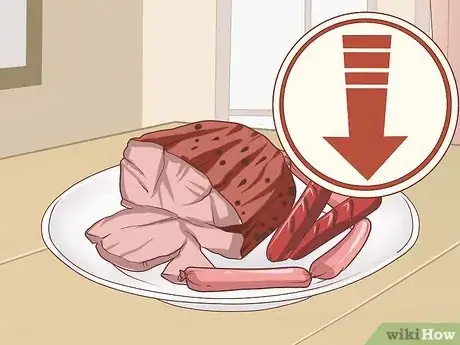

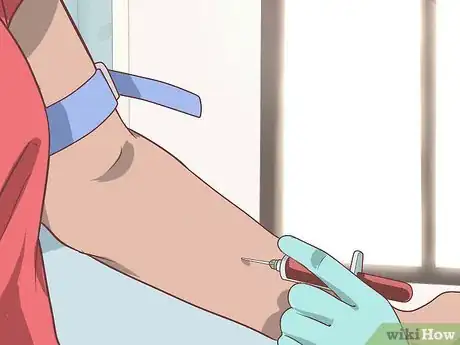
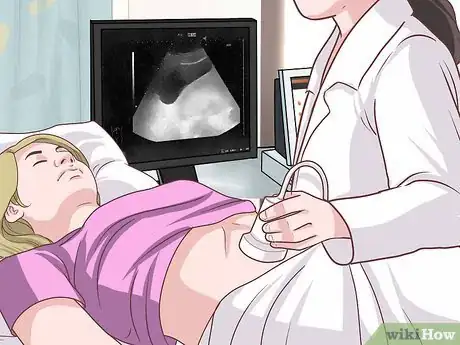
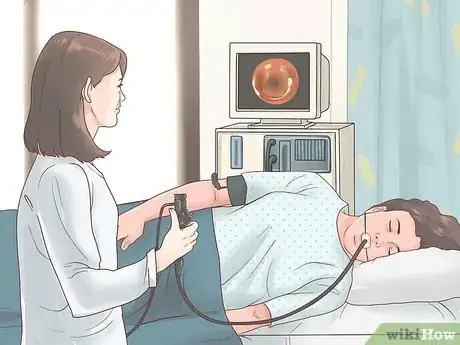
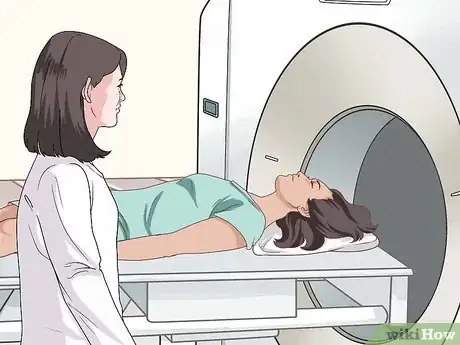



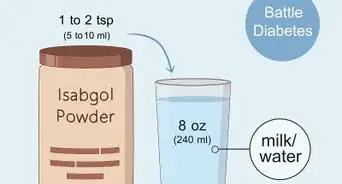
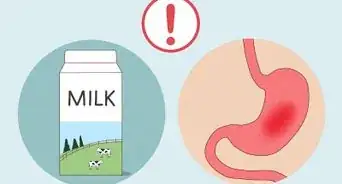


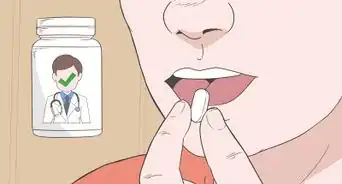

















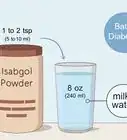
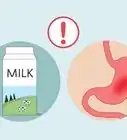






































Medical Disclaimer
The content of this article is not intended to be a substitute for professional medical advice, examination, diagnosis, or treatment. You should always contact your doctor or other qualified healthcare professional before starting, changing, or stopping any kind of health treatment.
Read More...